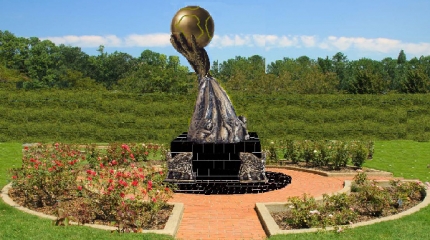Ladies and Gentlemen
It is great pleasure for me to be here with you today, to speak to you about a very painful subject of the incurable pains and sorrows that our people have been sharing for a long time. We believe the healing process will not begin until recognition is achieved. Just before I proceed with my speech, I sincerely thank all the organizers of this event. I specially would like to thank my dear friend Ioannis Fidanakis who contacted me earlier and asked me to be here amongst you today.
I am an Assyrian. I have come here to tell you about the Assyrians who also, along with the Armenians and your people, the Greeks, were subjected to the same genocide in 1915 and continually throughout the few years that followed, during the last Ottoman Empire era, by the Ottoman state.
Assyrians once lived in their hundreds of thousands in the cities, towns and villages where geographically, located in the east and south-east regions of today’s Turkey.
The number of Assyrians living in Turkey has decreased dramatically over the past 50 years. Many Assyrians left to Europe in the 1970s for economic, religious and political reasons. Today, over 300,000 Assyrians live mostly in Germany, Switzerland, Netherlands and Sweden. The total number of the Assyrians worldwide is approximately 3 million.
Fewerthan 10,000 Assyrians live in Turkey today. Majority of them reside in Istanbul which was once called Constantinople as you would know it in your language. Approximately 3,000 live in their mainland, the Tur-Abdin region in South-Eastern Turkey.
More than half of all the Assyrian population was exterminated during the genocide of 1915. The Assyrian Genocide occurred in Turkey and Urmia (north-western Iran).
Large numbers of them were killed by the swords. Yes, you didn’t hear wrong, the swords! Or SEYFO, as Assyrians say it. I would like you to keep the word SEYFO in your minds for a while. This word, since 1915, has always meant the genocide for the Assyrians… For us it means blood flowing over the homeland; it means total destruction or simply, death. It is a communal pain that is felt deep in the heart by the generations after the genocide. It means homeland, which is no longer home!
The elderly Assyrians who witnessed the Assyrian genocide still remember the saying they heard from some of those who got involved in carrying out the genocide: ‘Red or white, an onion is an onion; it’s got to be chopped off! Meaning; a Christian is a Christian, whether Armenian, Greek or Assyrian, all got to be killed!
It is clear from the Ottoman documents that 1915 deportations and massacres were not only directed just against the Armenians. The general plan was that by getting rid of all the local indigenous non-Muslim people, so that what is left from that huge empire, all that of Anatolia, to be homogenized as Turkey or Turkish nation! This at the end resulted in over 2 million of Armenian, Assyrian and Greeks being massacred or deported from their homelands.
Prior to the First World War, the population of Turkey was fourteen million. Four and a half million of those were Christian. In other words, thirty three percent of the population was the local Christian indigenous people. Today in Turkey, the total number of Christian people only amounts to 0.1 percent of the population.
What happened to those local Christian indigenous people? What happened to the Assyrians, Armenians and Greeks? Where are they now?
Dear friends,
"Seyfo", the Assyrian genocide, is still fresh in the minds of the Assyrian people as we are still being adversely affected by its consequences. As a result of SEYFO, we have lost our homes, and driven to be scattered all over the world; where now, we are in danger of losing our national identity.
We, Assyrians, have gone through a very traumatic experience. SEYFO opened deep and painful wounds in the souls of Assyrians which are waiting to be treated. We lost more than half of our population. The time is now for humanity to hear and do something about it. International recognition would not take away the pain deeply rooted in our souls but would help us feel that we are a part of the humanity which could not go to the rescue of our grandparents.
We are still in hurt! However, this does not mean we are after hate or revenge. What we want is recognition and reconciliation!
The Assyrian genocide has yet to be recognized by the perpetrator, Turkey, as well as the International community. We have been waiting for 95 years now. It may seem that 95 years is a long time in the past, however, the past genocides are a matter for all people now.
I am most happy that so far about twenty countries have officially recognized the 1915 Armenian Genocide. However, March 11,2010, is a special historical day for us as Assyrians and Greeks. The Swedish Parliament has passed -the world’s first ever- a resolution that recognized not just the Armenian only, but inclusive of the Assyrian and Greek Genocide. I hope other countries will follow suit.
March 4, 2010, The House of Foreign Affairs Committee of the US Congress narrowly voted to declare the deaths of 1.5 million Armenians to be an act of genocide. While we are very pleased about this decision, however, we need to ask what about the Assyrian and Greeks? As a representative of Assyrian people, I have to ask for justice for my people too.
Our Armenian friends living in the United State have to assist us to add the Assyrian and Greek names on the same resolution! They should remember that the Assyrians and the Greeks were subjected to the same genocide. Therefore, today, we demand the inclusive recognition from the US Congress and tomorrow from the whole world.
Today I call upon Turkey to free itself from its taboos and recognize that in 1915, during the late Ottoman Empire, hundreds of thousands of Armenians, Assyrians and Greeks were killed in a planned, organized genocide that was carried out by the government of the time.
A year ago Germany’s Chancellor Angela Merkel addressed the Israel’s parliament, the Knesset, and said in Hebrew, "The Holocaust fills us with shame. I bow my head before the survivors and I bow my head before you in tribute to the fact that you were able to survive."
I wonder when similarly, will a Turkish Prime Minister acknowledges and apologizes to the victims of the 1915 genocide?
I wonder when similarly, will a Turkish Prime Minister apologize to the genocide’s victimized nations’ in their languages?
I wonder when, will a Turkish Prime Minister realizes that the best way to build a future for the country together, is only through the recognition?
Sabri Atman,
April 06 2010, New York
Download in PDF



